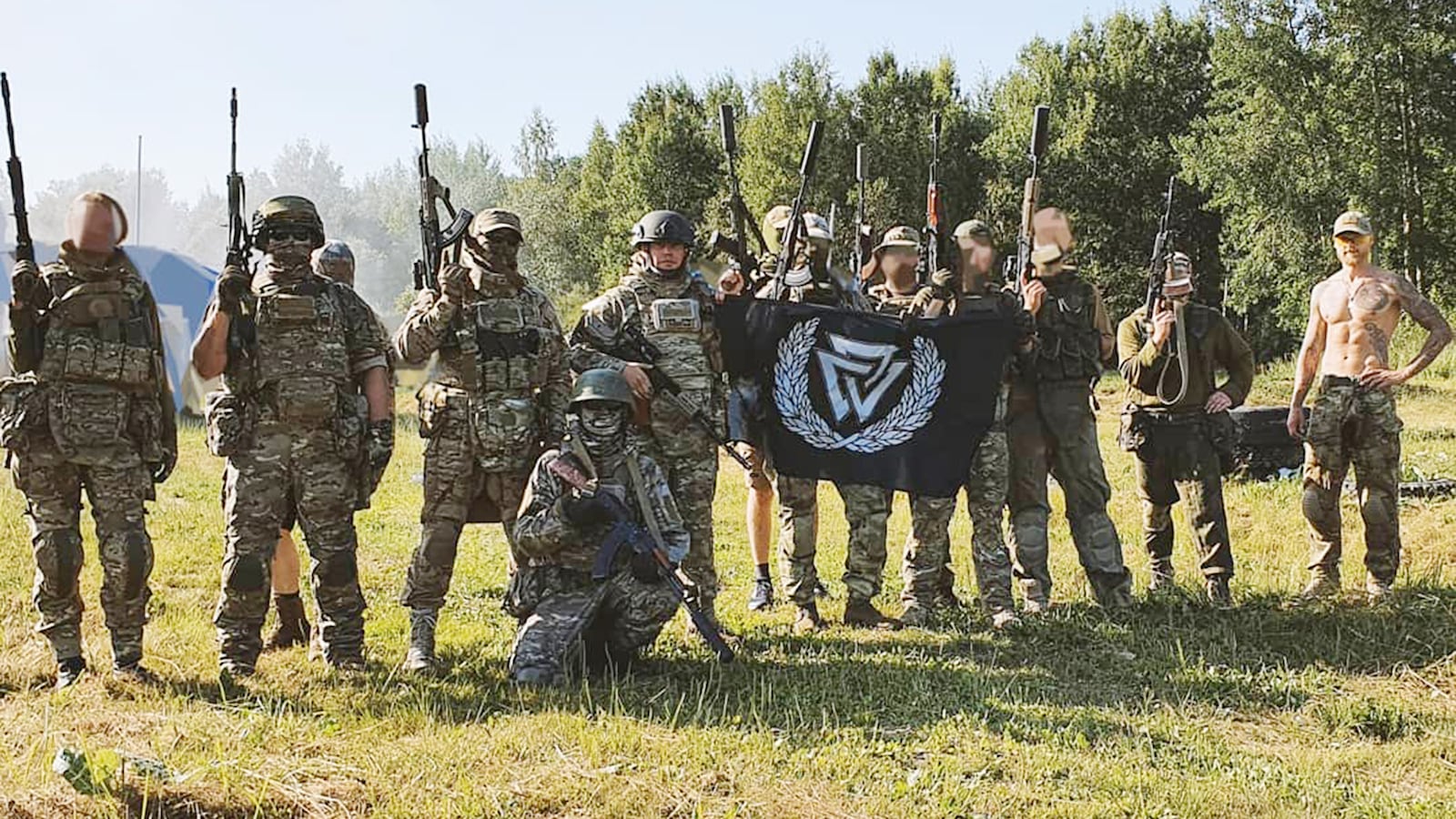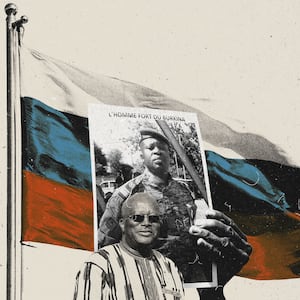One of the most feared and radical Russian paramilitary groups may have slipped up on social media and revealed its plans to return undercover to Ukraine, where it was accused of committing war crimes during a previous incursion.
Task Force Rusich, a Russian mercenary unit which glories in its neo-Nazi reputation, became known for its brutality when it was first deployed to the Donbas region of eastern Ukraine during peak fighting between Russian separatist forces and the Ukrainian military in the summer of 2014.
Now it seems Rusich has set its sights on the strategically important north-eastern Ukrainian city of Kharkiv. That could mean the Wagner Group—which counts Rusich among its network of off-the-books fighting cadres posted all over the world—will be well-positioned for the opening salvo in what some fear may be the prelude to an all-out war between Russia and Ukraine.
The Pentagon says it has intel suggesting Russia plans to position a group of covert operatives inside Ukraine to conduct false-flag operations as a pretext for invasion. These public claims have rightly set Washington, Kyiv, and the rest of the world on edge with tensions mounting over the 100,000-plus Russian troops now massing near Ukraine’s borders with Russia and Belarus.
The Wagner Group—which the U.S. believes is run by one of President Vladimir Putin’s closest oligarch friends, Yevgeny Prigozhin—is not officially acknowledged as part of the Russian military apparatus, and the Kremlin says it doesn’t know anything about its operations around the world. In many cases, the quasi-private military units are sent to conflict zones where Putin wants to maintain plausible deniability.
Rusich left Ukraine in the summer of 2015 a few months after the U.K., Canada, and the European Union sanctioned one of the group’s commanders, Alexey Milchakov, after reports of his unit’s involvement in alleged war crimes in Donbas.
Milchakov and Rusich’s lead military trainer, Yan Petrovsky, have since been spotted in Syria, according to multiple reports about their recent exploits—which allegedly include the grizzly torture and dismemberment of a Syrian prisoner.
Rumblings about Rusich’s possible return to the front lines first surfaced on the contingent’s Instagram account late last year. On Sept. 27, the group indicated that they were training for military exercises in a post depicting a stylized photo of its members on a Russian armored vehicle.
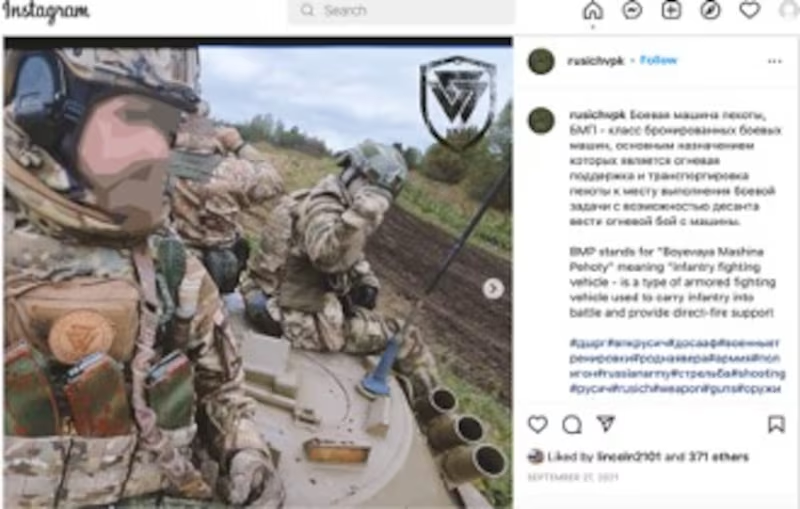
A month later, on Oct. 28, a comment on Rusich’s Instagram account appeared to suggest that the mercenaries had designs on a return to Kharkiv. A user asked if Rusich planned another deployment to “DNR/LNR,” which is shorthand for the Donetsk People’s Republic and Luhansk People’s Republic, the two Russian-separatist controlled districts of Donbas.
The reply from Rusich was straight to the point and apparently in the affirmative: “@anton_lvr хнр, кнп, и т.д.” “хнр” is an abbreviation for the “Kharkiv People’s Republic,” which pro-Russian separatists briefly proclaimed in 2014 before Ukrainian forces reasserted control over the city in north-eastern Ukraine. The message seems to have suggested they expect to return to Ukraine.
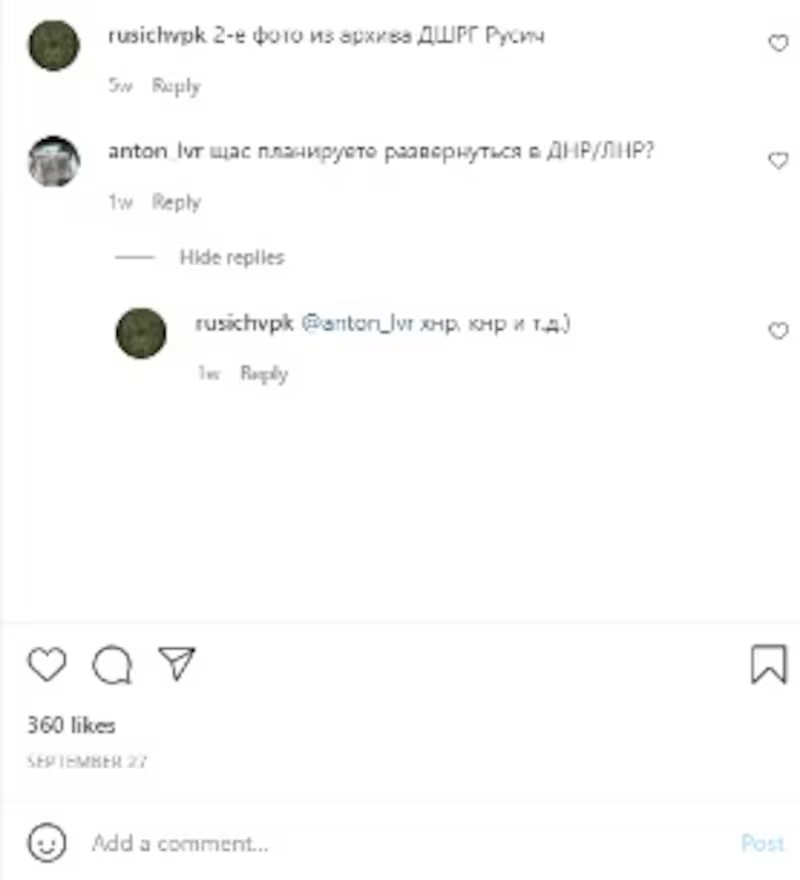
With roots in St. Petersburg’s ultranationalist and neo-Nazi scene, the group carried out reconnaissance and sabotage operations behind enemy lines in Ukraine and played a significant role in several key battles during the early part of the Donbas conflict. By Milchakov’s own account on his Vkontakte social media page, he and Petrovsky formed the group in the summer of 2014 after graduating from the “Partizan” paramilitary training program run by the Russian Imperial Legion, the fighting arm of the St. Petersburg-based and U.S. sanctioned Russian Imperial Movement.
Rusich acquired a reputation for exceptional brutality. In September 2014, Rusich attacked a column of Ukrainian volunteer fighters near the Donbas town of Metallist, killing dozens, according to Ukrainian news reports. Afterward, local sources said that Rusich members mutilated and set fire to the dead, images of which circulated on the web and became part of the group’s mythos. Throughout their 2014-2015 deployment, Milchakov, Petrovsky, and other Rusich members courted infamy, posting images of atrocities (warning: graphic) and selfies with dead bodies, according to Ukrainian media. Ukrainian human rights groups also accused the contingent of torturing prisoners of war. Rusich’s outsized social media footprint served as useful propaganda, hyping members as fearsome warriors and belying their relatively small numbers in Ukraine during the 2014-15 period.
Rusich withdrew from Ukraine in 2015, only for members to reappear in Syria, guarding strategically important oil and gas infrastructure belonging to state-backed Russian firms, as New America and Novaya Gazeta first reported in 2019. Posts to the group’s Instagram account showed members in the Palmyra region of central Syria, one of them posing in front of the ancient ruins with a Nazi salute.
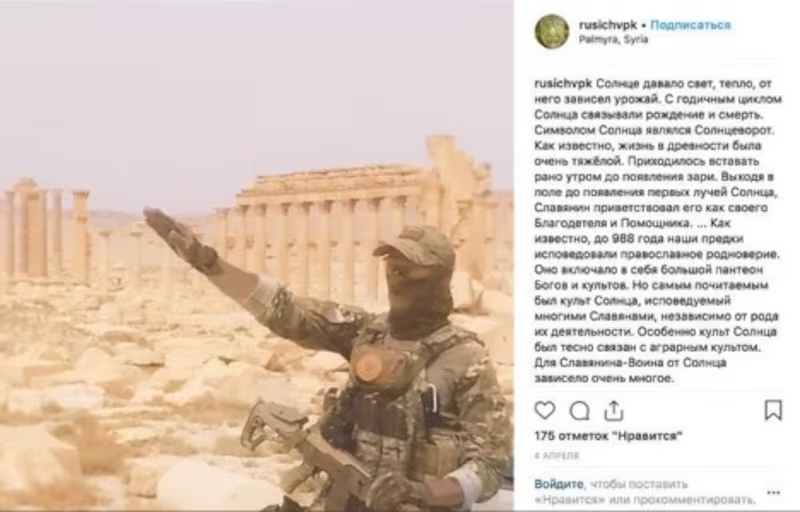
Further research carried out by New America shows that more recently Rusich has been training at a Russian government facility near St. Petersburg—along with other far-right organizations. The location suggests that the paramilitary group has at the very least tacit Kremlin backing, even if it remains unknown whether the paramilitary unit is under direct state control.
After the October 2021 Instagram comment in which Rusich hinted at a return to Kharkiv, the group’s account went silent, which is notable in itself for an organization that has often cultivated attention via social media.
Then, on Jan. 15, 2022, the day after the White House accused Russia of planning a false-flag operation in Ukraine as a pretext for invasion, Rusich’s account lit up. Along with photos of recruits conducting winter training at what appears to be the same St. Petersburg firing range, Rusich posted a quote from the Edda, a cycle of ancient Norse poems that is popular among the European far right:
Alone you will kill
the ferocious snake,
on Gnitahade he
lies, insatiable.
The quote is classic Rusich: ominous, vague, with undertones of glory and violence. As Russia readies for conflict on the Ukrainian border, it appears that one Russian militia contingent is preparing for the next chapter of a war it played no small part in starting.
